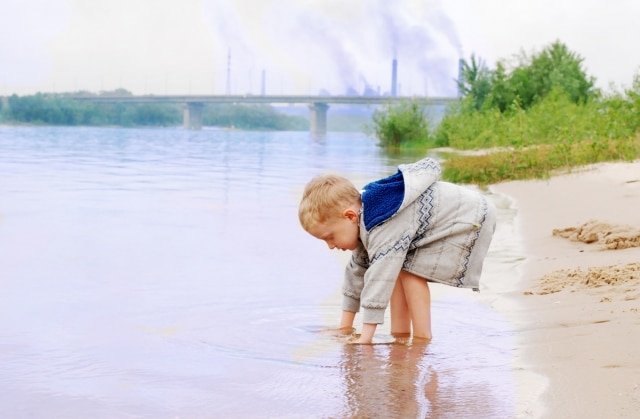When it comes to the health impacts of global warming, Americans are woefully uninformed.
In fact, according to a survey conducted by the Yale Project on Climate Change Communication and the George Mason University Center for Climate Change Communication, only about one in four can even name a health problem associated with global warming that their fellow Americans might be suffering from.
Only 14% of Americans are aware of one of the most obvious health impacts of all the global warming pollution that has been dumped into our atmosphere: respiratory problems like asthma and other lung diseases. A mere 6% make the connection between illness, injury, and death resulting from extreme weather events and climate change.
Less than 5% of Americans could name any of the other consequences to human health from global warming.
Perhaps that’s no surprise, given that the survey also found 70% of Americans have given “little or no thought” to how global warming could affect human health in the first place.
“Global warming is already having real health consequences in America today,” researcher Ed Maibach, PhD, of George Mason University said in a statement. “People are being harmed by extreme weather events, wildfires, decreased air quality, and illnesses transmitted by food, water, mosquitoes and ticks. Our study found that most Americans don’t yet know that climate change threatens human health. This suggests the need for a public health education campaign.”
Another key takeaway of the survey: even at a time when racial and economic injustice is at the forefront of the national consciousness, less than one-third of Americans are able to answer correctly when asked “Do you think some groups or types of Americans are more likely than other Americans to experience health problems related to global warming?”
“Global warming will disproportionally harm the most vulnerable members of our society,” said researcher Anthony Leiserowitz, PhD, of Yale University. “Young children, the elderly, lower-income Americans, the sick, racial and ethnic minorities — these are just some groups of Americans that are especially vulnerable to the health impacts of global warming.”
The 2014 National Climate Assessment by the U.S. Global Change Research Program backs up the assertion that the most vulnerable among us are the most at risk, finding that, “Climate change will increase the risk of climate-related illness and death for a number of vulnerable groups in the United States, as when Hurricane Katrina devastated New Orleans in 2005.”
The NCA also has this to say about global warming’s impacts on Americans’ health overall:
“Climate change threatens human health and well-being in many ways, including impacts from increased extreme weather events, wildfire, decreased air quality, threats to mental health, and illnesses transmitted by food, water, and disease-carriers such as mosquitoes and ticks. Some of these health impacts are already underway in the United States.”
But don’t worry, Americans. While you probably don’t know about this, either, the Department of Health and Human Services recently released “The Health Care Climate Resilience Guide and Toolkit” to help hospitals better prepare for taking care of you when you arrive at the emergency room with a climate-related health problem.
Image Credit: Soloviova Liudmyla / Shutterstock.com
Subscribe to our newsletter
Stay up to date with DeSmog news and alerts






